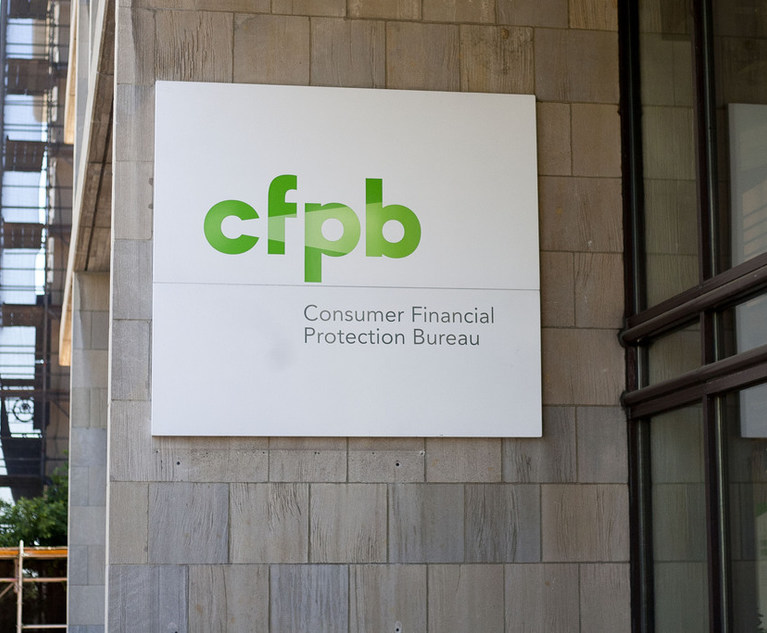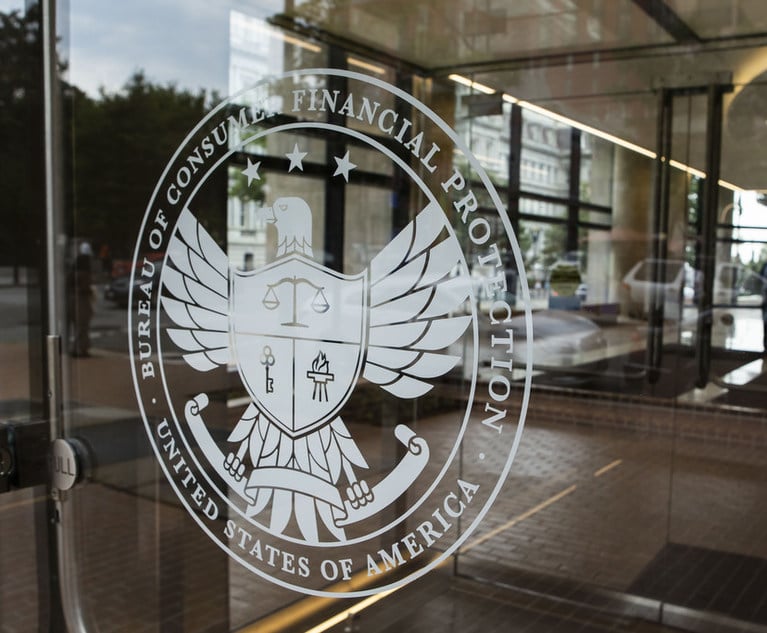Jeffrey Alberts

January 02, 2025 | New York Law Journal
Federal Judge Slaps Down the SEC’s Attempt to Regulate Crypto Liquidity ProvidersThe authors write "Cryptocurrency traders and decentralized finance (DeFi) participants have an additional thing to be thankful for this year after a district court in the Northern District of Texas struck down a Securities and Exchange Commission (“SEC”) rule redefining who must register as a securities “dealer.”
By Aaron Wiltse and Jeffrey Alberts
10 minute read

February 29, 2024 | New York Law Journal
The CFPB Limits Intra-Agency Appeal RightsThe CFPB adopted a new intra-agency appeals process on Feb. 22, 2024. While the CFPB described its new rules as resulting from its review of revisions that other regulators have made to their intra-agency appeals processes over the past decade, the rules are most noteworthy for how they deny rights that other regulators of financial institutions provide.
By Jeffrey Alberts
7 minute read

September 11, 2023 | New York Law Journal
The SEC Sows Confusion With NFT Enforcement ActionThis article highlights the recent SEC decision regarding NFT enforcement and discusses how, by treating NFTs as securities, it appears to be taking a legal position that could sweep a variety of products that never have been viewed as securities.
By Jeffrey Alberts
7 minute read

August 03, 2023 | New York Law Journal
The SEC's Materially False Statements on CryptoOn July 13, a federal judge in the Southern District of New York ruled that the analytical approach to cryptocurrency tokens advanced by SEC Chair Gary Gensler and the SEC staff was incorrect. Not only is it not clear that most cryptocurrency tokens are securities, the court concluded that no cryptocurrency tokens are securities.
By Jeffrey Alberts
8 minute read

March 29, 2023 | New York Law Journal
New York AG as Global Crypto CopThis article asks the question "Is it in the interest of New Yorkers for the New York AG to aggressively litigate against foreign companies for violating New York state registration requirements?"
By Jeffrey Alberts
7 minute read

December 28, 2022 | New York Law Journal
The CFPB Seeks Power Through Proposed RegistryThe CFPB closed out 2022 with a deceptively innocuous-sounding proposal to require nonbank financial companies to report certain public orders and judgments relating to consumer protection violations. However, it is clear that this proposal is a powerful one-way ratchet the CFPB can use to expand regulatory control over fintechs and other nonbank financial companies.
By Jeffrey Alberts
7 minute read

September 28, 2022 | New York Law Journal
Sanctioning Code: What's Next for Crypto Sanctions?OFAC is now facing a lawsuit funded by the largest blockchain exchange in the United States relating to sanctions on a blockchain protocol known as "Tornado Cash." The future of blockchain technology could depend on the outcome of that lawsuit and on how OFAC's decides to exercise its power to impose sanctions on blockchain programs and assets.
By Jeffrey Alberts
8 minute read

June 29, 2022 | New York Law Journal
The CFPB's Fintech Power GrabThe Consumer Financial Protection Bureau announced this April that it intends to begin using a "dormant" authority to conduct regulatory examinations of nonbank financial companies when they pose risks to consumers.
By Jeffrey Alberts and Dustin N. Nofziger
8 minute read

March 30, 2022 | New York Law Journal
Is the SEC's Regulation of Crypto Lenders Self-Defeating?U.S. holders of cryptocurrency have been eager to participate in the crypto lending market, but recent actions by the SEC are causing unexpected, and likely unintended, changes in how these loans are made. In fact, the SEC's actions may well reduce the amount of lending done through products registered with the SEC and increase the amount of lending on platforms that are not operated by licensed U.S. companies.
By Jeffrey Alberts
8 minute read

January 07, 2020 | New York Law Journal
Funds Travel Rule: A Headache for Cryptocurrency TransmittersOver the past few years, investor money has been flooding into cryptocurrency transmission businesses. Entrepreneurs and investors have been moving quickly to capture market share in this potentially massive market. However, it looks like some of those businesses have moved a little too quickly.
By Jeffrey Alberts and Dustin N. Nofziger
8 minute read
Trending Stories
- 1St. Jude Labs Sued for $14.3M for Allegedly Falling Short of Purchase Expectations
- 2'Ridiculously Busy': Several Law Firms Position Themselves as Go-To Experts on Trump’s Executive Orders
- 3States Reach New $7.4B Opioid Deal With Purdue After SCOTUS Ruling
- 4$975,000 Settlement Reached After Fall on Sidewalk
- 5'Where Were the Lawyers?' Judge Blocks Trump's Birthright Citizenship Order



